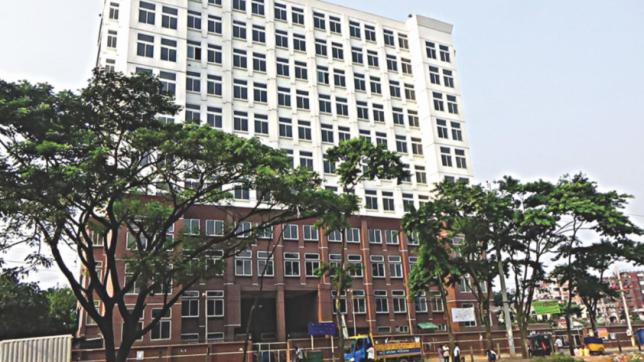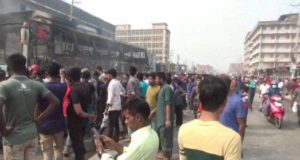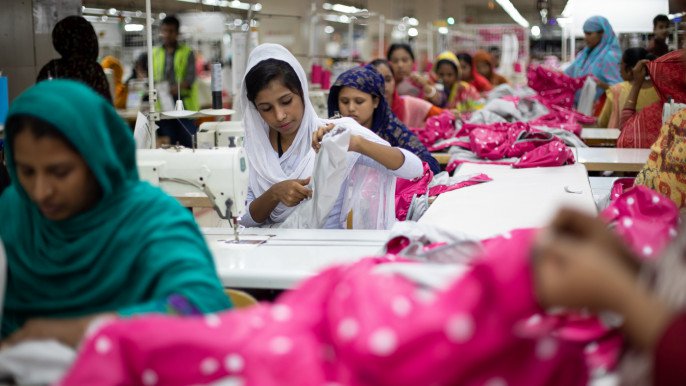Published in The Daily Star on November 3, 2017

Photo: The Daily Star
The 12-storey dormitory built by the government for female garment workers for Tk 26.98 crore remains eerily empty despite being ready for almost a year now.
The dormitory was built on 1.48 acres of land at Ashulia on the outskirts of Dhaka with a view to meeting the demand for accommodation of garment workers, who have to spend nearly 50 percent of their monthly income on house rent.
But the hostel’s management is yet to rent out a single spot out of the 744 available — even at the low rate of Tk 1,000 a month.
The hostel’s barrack-like arrangement and the lack of gas connection are the main reasons the workers are staying away.
“It is not possible to live with 61 others in one room,” said Mahela Akter, a garment worker who resides in Ashulia area and recently went to check out the dormitory.
The management has lumped in 62 beds in each room like a big hospital ward, and there are only 12 toilets and 12 bathrooms in the entire building.
“This is why I did not choose it even though the monthly rent is low,” she added.
Monjuara Begum, another garment worker, echoed the same.
“Had there been separate rooms for workers I would have rented one,” said Kohinur Akter, another garment worker who lives in Jamgora area of Ashulia.
The setting should have been better as the workers need to rest in silence after a full day’s work, said Nazma Akter, president of Sommilito Garments Sromik Federation, a garment workers’ rights body.
“Really, it is impossible to live like that,” she added.
Ferdousi Farjana, assistant hostel supervisor, acknowledged the shortcomings of the structure, built by the Public Works Department.
After the completion of the construction, the PWD handed over the project to the Directorate of Women Affairs for its operation and management.
“We do not know whether it is possible to give gas connection in the building.”
The dormitory has been constructed targeting the single workers and single mothers with a child under the age of seven, she said. For unmarried workers the rent would be Tk 1,000 a month and for single mothers Tk 1,200.
“We are campaigning among workers every day, but the response is abysmal,” Farjana added.
The house-owners charge higher rents from the poverty stricken garment workers, who have migrated from rural areas in search of jobs in the industry-dense areas like Savar, Ashulia, Gazipur and Maona.
To alleviate the situation, the central bank has also created a low-interest fund from which factory owners can take loans to build such dormitories for their workers. The interest in this fund too has been poor.
 CPD RMG Study Stitching a better future for Bangladesh
CPD RMG Study Stitching a better future for Bangladesh



